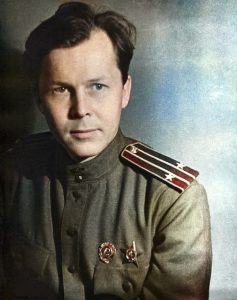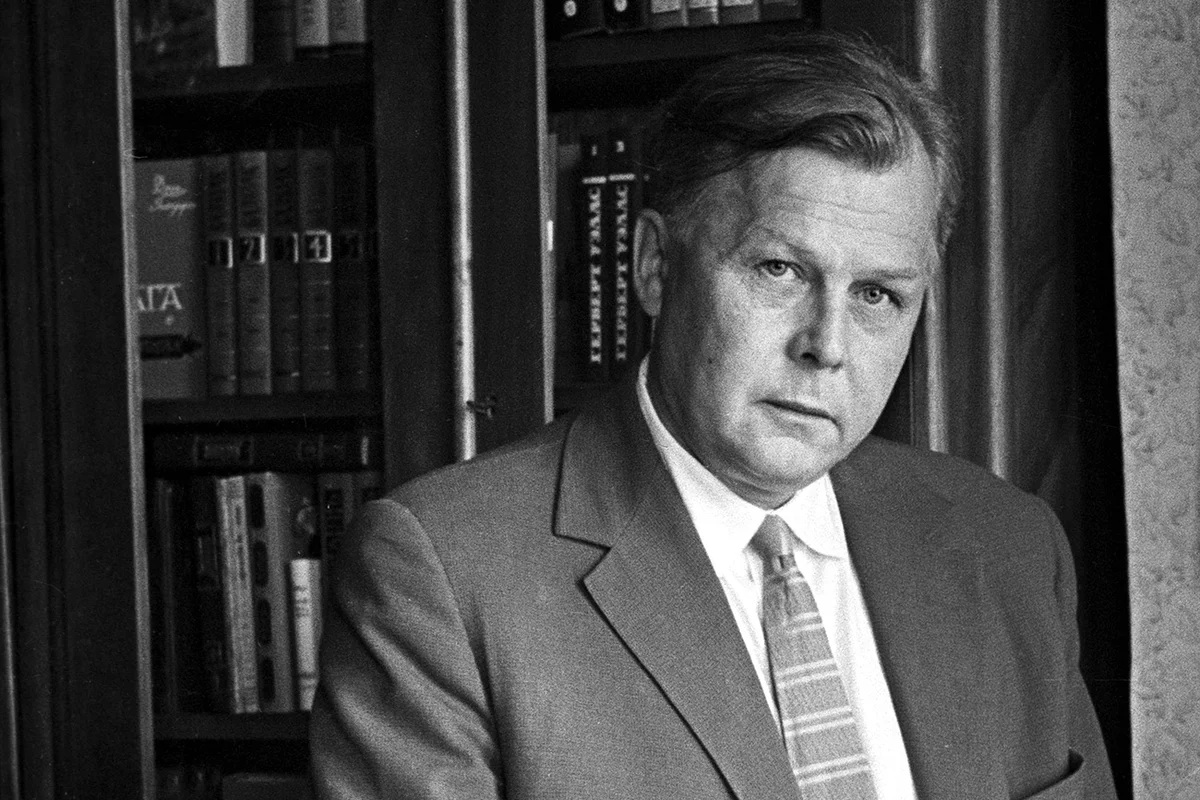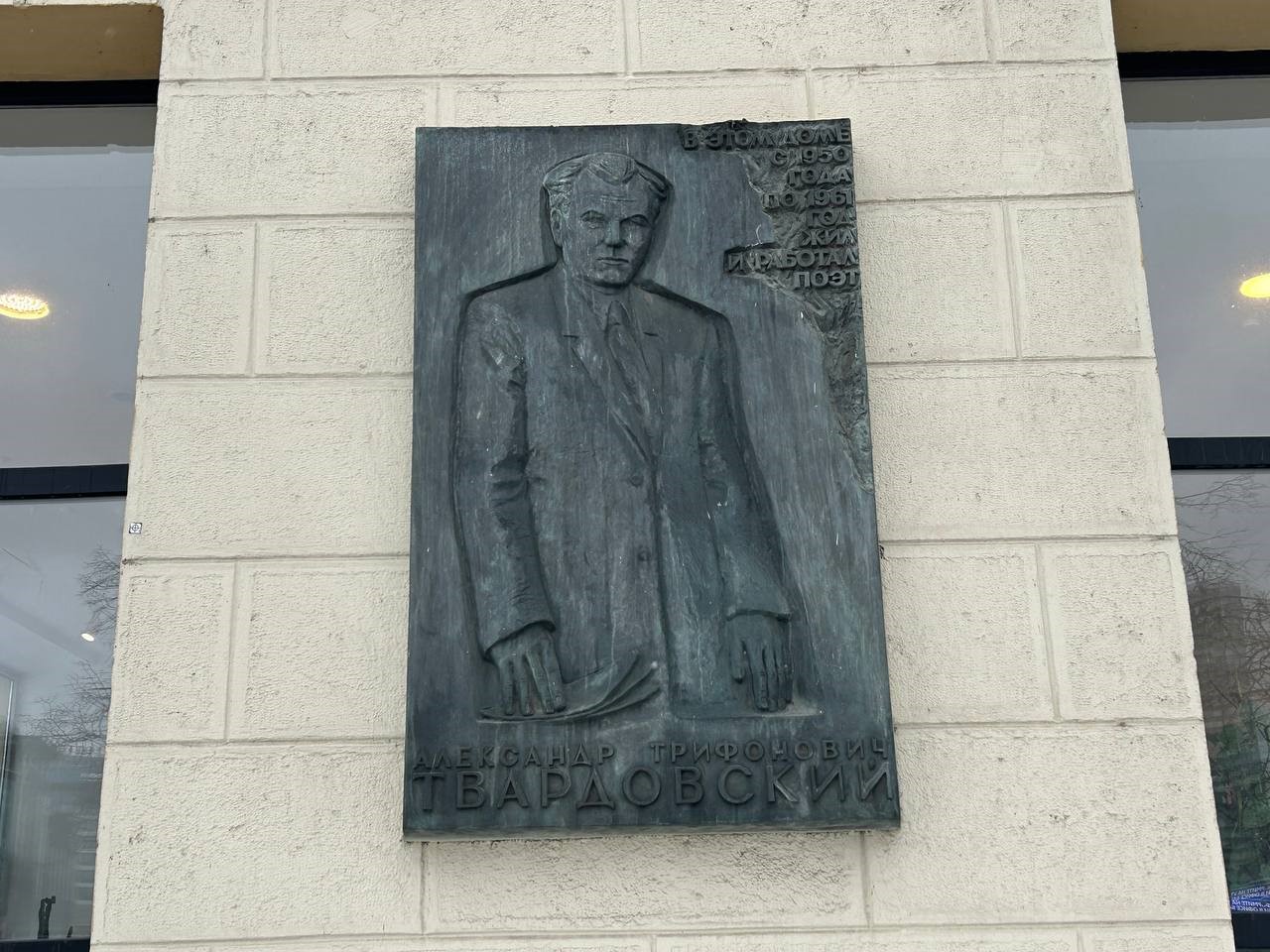Alexander Trifonovich
Tvardovsky
1910-1971

Alexander Trifonovich Tvardovsky was a Russian Soviet writer, poet, novelist, and journalist. He also served as a war correspondent and held the rank of Lieutenant Colonel in 1944. He was the editor-in-chief of the magazine Novy Mir from 1950 to 1954 and again from 1958 to 1970. He was born in the village of Zagorye, the Smolensk governorate, in the family of a blacksmith. Tvardovsky grew up surrounded by the atmosphere of peasant life and labour, which had a significant impact on his work. After finishing a rural school, he entered Smolensk Pedagogical Institute but soon left it to complete his studies at the Moscow Institute of Philosophy, Literature, and History in 1939. Tvardovsky began his literary career in his youth, sending his poems to the newspaper Rabochy Put in Smolensk, where a famous poet worked at the time. M. Isakovsky’s support helped Tvardovsky publish his first poems, which gave him confidence in his abilities and started his literary career. In 1936, his first major poem, “The Land of Muravia”, was published and quickly gained widespread fame and recognition. This poem became an important step in Tvardovsky’s development as a serious writer, as it reflected the searches and aspirations of young people. In 1939, Tvardovsky joined the Red Army and during the war with Finland found himself at the front as a war correspondent. His writings from those years, including his front-line notes, were filled with the spirit of struggle and love for his country. During the Great Patriotic War, Tvardovsky worked actively in front-line newspapers covering events on the scene. One of the most well-known works of this period is the poem “Vasily Terkin”, which was published between 1941 and 1945. This poem became a symbol of courage and heroism, and it helped to increase Tvardovsky’s popularity as a poet. The poem was widely read by millions of people, and Vasily Terkin’s heroic image became a cultural icon. After the war, Tvardovsky continued to write poetry. In 1946, he finished the poem “The House by the Road”, which he had started during the war. This poem also received recognition and became a significant part of his literary legacy. In the 1950s and 1960s, Tvardovsky wrote another significant work – the poem “Far Away”. This poem is also a part of the great poetic tradition and reflects Tvardovsky’s personal beliefs and views on life and society. In addition to poetry, Tvardovsky also wrote prose. In 1947, he published a book titled “Homeland and Foreign Land” about the Great Patriotic War. The book is a collection of his personal experiences and observations of the people who lived through those tragic events. Tvardovsky also made a significant contribution to the literary scene as the editor-in-chief of the prestigious Novy Mir magazine from 1950 to 1954 and again from 1958 to 1970. During this time, he championed the rights of talented writers and poets, ensuring their work was published. His works, which reflect an entire era, have become a source of inspiration for many. His writings about war, life, and human resilience have touched the hearts of generations. In memory of Tvardovsky, a memorial plaque was erected in Moscow.
Address: Moscow, Kutuzovsky ave., 1/7

